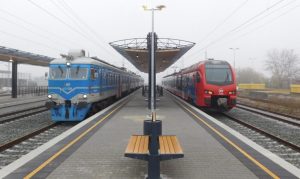 The World Bank and the French Development Agency will provide a USD 125 million for the modernisation of Serbia railway infrastructure which covers the upgrade of 3,735 km of its network.
The World Bank and the French Development Agency will provide a USD 125 million for the modernisation of Serbia railway infrastructure which covers the upgrade of 3,735 km of its network.
On March 17, the World Bank Board of Directors approved a USD 62.5 million financial support provided under the first phase of the multi-phase programmatic approach for Serbia railway sector modernisation project which has an overall financing envelope of USD 400 million.
The World Bank is cooperating with the French Development Agency with a 50 percent joint co-financing of the first phase, taking advantage of aligned priorities such as green transport and regional integration and bringing the total investment for this phase to USD 125 million.
“Serbia’s rail network is a major asset for the country with the potential to play a strategic role in the nation’s growth and job opportunities. The programme will lead to better quality infrastructure, improved safety, enhanced in-country and regional integration, accelerated economic growth, and an improved business environment in the region,” sad Stephen Ndegwa, World Bank Country Manager for Serbia said.
Following programme’s implementation, Serbia expects a 5 percent increase in network utilisation, a reduction of fatalities on the rail network by 23 percent and a 10 percent increase in the market share of national freight rail over the next 10 years.
According to preliminary assessments, the portion of the project that will lead to mitigation or adaptation benefits for project beneficiaries, also known as climate co-benefits, is expected to exceed 89 percent, amounting to USD 111.28 million.
The railway infrastructure projects planned by the authorities involve a EUR 3.3 billion investment over the next decade. They include electrification works, the deployment of the European Railway Traffic Management System (ERTMS), speed restriction removal, the improvement of freight line capacity on the core network, and enhancement of the management of rail assets.
Serbia is focusing its efforts to transform its rail sector into a safe, sustainable, and effective railway system linking it to key export markets while simultaneously lowering the carbon footprint of this sector.
This expected transformation is essential for boosting investment and growth in Serbia, lowering the climate footprint associated with trade and transport activities, and ensuring connectivity for passengers and freight. This is well aligned with EU transport policy and trans-European network requirements. The three stages of the World Bank project will include infrastructure investments and asset management, initiatives to strengthen institutions in the sector, and modernizations efforts.
In 2020, the President of Serbia, Aleksandar Vučić, has presented the railway strategy to modernise country’s railway network and to increase its transport market share.
Share on:



